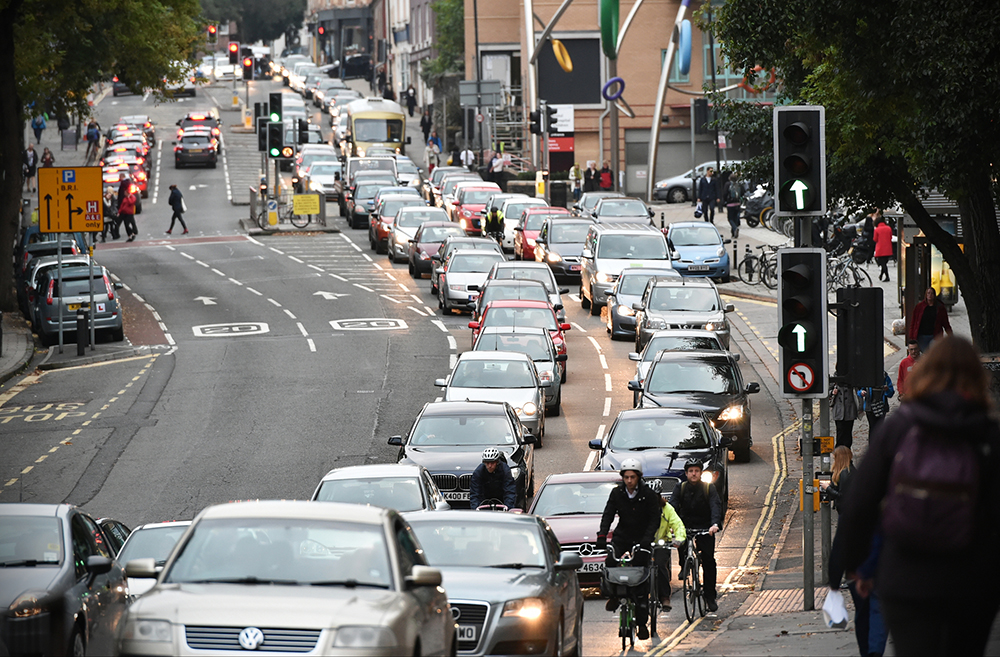
Business and construction groups have mounted a new lobbying campaign this week to wrestle £4bn funding from government to tackle energy efficiency in the UK’s ‘leaky homes’.
The National Housing Federation used its latest research, which confirmed that England’s homes account for more carbon emissions every year than is produced by all of the country’s cars, in a plea for the £3.8bn energy efficiency funding in the autumn Spending Review.
The research calculates for the first time that England’s 25 million homes – which produce 58.5 million tonnes of CO2 every year – emitting the equivalent of the average annual use of 28 million cars. There are 27 million cars in use in England, which produce 56 million tonnes of CO2 annually.
The publication of the research from the NHF comes as a major coalition of consumer and industry groups sent an open letter to the prime minister urging government action on energy efficiency.
Citizens Advice, Which?, Aldersgate Group and the Federation of Master Builders are urging the government to work with them to address the obstacles currently faced by consumers and ensure lessons from previous energy efficiency schemes are learned.
Despite recent improvements, current consumer protections are not ready for the pace and scale of the work needed to improve millions of UK homes, the letter says.
‘If we don’t start making serious progress on decarbonising and retrofitting our homes, we won’t achieve the government’s target of net zero by 2050. It’s critical that we act now.’
The coalition is calling on the government to take the opportunity to fix these gaps through its upcoming Net Zero Strategy and put in place a long-term strategy to help households overcome the barriers to adapting their homes for the net zero transition.
Meanwhile, the NHF said that government funding would help landlords change energy efficiency at scale and “unlike private landlords and homeowners they can retrofit whole streets, estates and even neighbourhoods simultaneously”.
It said: “In 2019 alone more than 100,000 social homes had their energy efficiency improved, but government funding would enable housing associations to go further, getting the two million homes they own and manage to EPC C by 2030 and setting them up to go on to be fully carbon neutral.
“Achieving carbon neutrality for these homes would be the equivalent of taking 1.8 million cars off the road indefinitely – the equivalent of all of the cars in Manchester and Birmingham combined.”
Kate Henderson, chief executive of the National Housing Federation, said: “If we don’t start making serious progress on decarbonising and retrofitting our homes, we won’t achieve the government’s target of net zero by 2050. It’s critical that we act now. Independent and government experts have made it clear that without serious urgent action, we’re looking at a global climate catastrophe.
“Housing associations are already planning to invest billions in retrofitting their homes, but we can’t do it alone. However, with support from government there’s a clear opportunity here to retrofit millions of homes at scale and pace. That’s why it’s vital that the government delivers on its pledge of £3.8bn for retrofitting social homes in the Spending Review this year. We can then work together to help the country lead the way in climate friendly, net zero housing.”
Comments
Comments are closed.











The solution is obvious…ban homes ! All governments come up with the same easy and financially beneficial (to the Exchequer) answer to solve perceived environmental problems, namely ban it or tax the population. Such measures are of course hidden away in the party manifestos at election time !